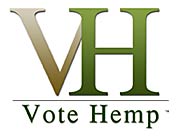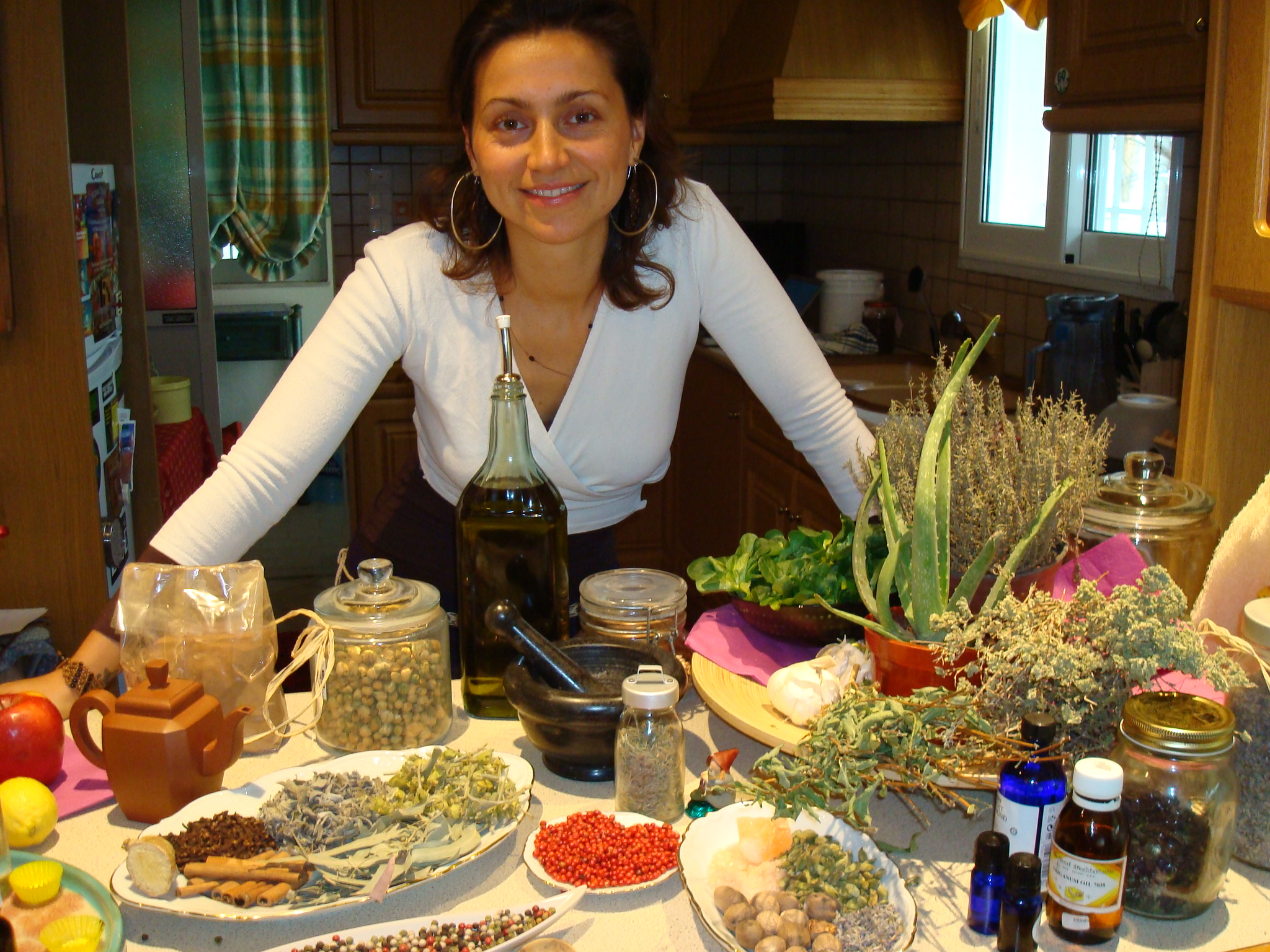
Many people still have the image in their minds that those who run hemp companies are neo-Luddites, and that the farmers who supply them with their raw materials sow the seed by hand on small plots and harvest the grain or fiber with horse-drawn equipment. This may come to pass again in the future, but for now farmers, manufacturers, distributors and consumers are all part of a complex and modern system. I also work for a company that distributes all kinds of industrial supply parts from companies such as Grainger, John Deere, McMaster-Carr, Motion Industries, MSC and Timken. It often strikes me that the hemp industry is also part of this massive supply chain. We are far from being part of the "counterculture." As
The Oregonian story on Living Harvest shows, we are indeed becoming more a part of the mainstream every day.
Traditional industries in the U.S. and around the world are embracing the benefits of using hemp in their products. I was reminded of this again earlier this week when Reuters reported that visitors at the British International Motorshow in London viewed a prototype of the
Lotus Eco Elise which is made with the equivalent of 1,700 recycled aluminum cans and with hemp grown locally in Norfolk (comprising 25% of the car). It also has solar panels on the roof to help power its electrical system. While the car is not a high-torque electric tractor running off solar panels and farming local, organic, sustainable crops, it does push the envelope of industrial design. That in turn helps get us closer to that future by educating the media and the public about what is truly possible and attainable.
As wonderful as it is to imagine and work towards a future where industrial hemp is grown locally to meet our needs for food, clothing, shelter and transportation, reality does have a way of rearing its ugly head when you least expect it.
Anna Korakaki found this out in Athens, Greece last week in a nightmarish scene where she was arrested for receiving 4.5 kilos of hemp protein powder at her local post office and was then forced to spend the night in a jail cell. All this because she was creating superfood recipes for her new natural foods company.
We have come a long way in the last fifteen years through educating farmers, legislators, the media, businesses and consumers, but it is obvious that we still have a long way to go, and we need your help to do it.
[More...]

Anna Korrakaki On Wednesday morning July 16th, Anna Korakaki went to her local post office in Athens, Greece to pick up her latest health product order from Navitas Naturals, a health food company based in the USA. Anna had previously received shipments from Navitas which included raw cacao from Ecuador, maca from Peru, goji berries from Tibet, and other high-quality nutritious foods. Moments after accepting her package Anna was immediately intercepted by 4 police officers, thrown on the hood of a police car and brutally handcuffed. Police then ransacked her apartment and after finding nothing suspicious or illegal, took Anna to a police station for further interrogation. Anna was then forced to spend the night in an Athens jail cell. The reason for Anna Korakaki's arrest was that she had received 4.5 kilos of hemp protein (a 'super-food' made from powdered hemp seeds), which she had ordered for the express purpose of making healthy smoothies. The order had a value of 57 Euros (US$89), and represented but one of hundreds of hemp products available worldwide in health food stores, super-markets and via the Internet.
Hemp comes from the plant of the botanical name Cannabis Sativa. The difference between marijuana and hemp is the appearance and the respective amounts of Δ9-
tetrahydrocannabinol (THC). Strains of
Cannabis sativa that are approved for industrial hemp use (such as rope and clothing) and hemp foods contain only minute amounts of this psychoactive compound, whereas marijuana and hashish ('narcotics') contain high amounts of THC. Hemp seeds are considered by leading researchers and medical doctors to be one of the most nutritious food sources on the planet. Hemp seed contain 33 percent pure digestible protein, and are rich in iron and vitamin E, as well as omega-3 and omega-6 fatty acids
Hemp products are commonly found in health-food stores and supermarkets in the USA, Canada and Europe including Greece. Hemp is sold as a whole seed, a powder, as nut butter, as oil and salad dressings, and is sprouted for inclusion in healthy breads. Hemp is also used to make organic breakfast cereals, and is increasingly popular as a non-dairy milk (similar to rice, soy and almond milks), and as a non-dairy ice cream. Hemp is the highest source of essential fatty acids in the plant kingdom. Of the three million plus edible plants that grow on Earth, no other single plant source can compare with the nutritional value of hemp seeds. Both the complete protein and the essential oils contained in hemp seeds are in ideal ratios for human nutrition. Hemp protein contains all 21 known amino acids, including the 8 essential amino acids that adult bodies are unable to produce. It is rich in vitamin E, iron, and contains 33% protein. This means that per serving, hemp contains more protein than meat, fish, chicken and cheese.
Unfortunately, paranoia from the so-called 'War on Drugs' has sometimes implicated non-psychoactive industrial hemp varieties of cannabis with psychoactive marijuana varieties. The Greek court system, for instance, finds it difficult to define the difference between hemp food and marijuana. Tests of the Navitas Hemp Protein Powder by chemists at Greek Customs claim to have located trace particles of THC. According to Greek law this renders the hemp protein Anna received as an equivalent to marijuana. This has lead to Anna being charged with four criminal counts of drug possession. As a result, Anna could face prison if the court system cannot be convinced that the hemp food that she received is a valid, and universally legal, form of nutrition. According to Oprah Winfrey-consultant and best selling author Dr. Andrew Weil: "There is absolutely no health concern about trace amounts of THC in hemp foods."
It is well established that the seeds harvested from industrial hemp Cannabis Sativa, such as are grown in Canada and throughout the EU can contain low levels of THC. These levels are typically in the parts per million (ppm). In the USA, hemp foods are legal to sell and there is currently no legal limit on the THC content. In Canada and Europe regulations limit the concentration of THC in hemp seed oil and other food products to less than 10 parts per million.
The hemp protein that Anna Korakaki ordered is made from 100% ground hemp seed, grown and processed in Canada by
Hemp Oil Canada Inc. and distributed by
Navitas Naturals in the USA. In a statement from Hemp Oil Canada Inc. its president Shaun Crew writes, "
From the seed harvested, we are regulated to produce products which must contain less than 10 ppm (as the Canadian legal limit). According to the official Health Canada testing protocol for THC, the limit of detection is 4 ppm. So any analysis result falling under 4 ppm is reported as none detected. We are pleased to report that not a single analysis of our products has ever produced a result over 4 ppm and therefore it is stated and reported as none detected." Because of this fact and that the nutritional information listed for the product declared no THC levels, Anna felt certain that hemp protein was legal in Greece.
The day of Anna Korakaki's arrest, her friends went to a local health food store in Athens to purchase a loaf of sprouted hemp bread (meaning that whole hemp seeds had been imported to Greece, then sprouted and ground for baking). The bread was brought before the judge to demonstrate that hemp foods are available in Greece, which seemed to shock the judge, but made no difference to his thinking towards Anna's parole. Anna is now required to go to her local police station once per month, identify her self and register by signature, until such time as her decisive day in court which, given the typical speed with which Greek justice is served, could be as much as two years away.
It stands to reason that even if someone were to eat an entire 4.5 kilo bag of hemp protein, they would not experience any effects, or an altered state of consciousness, from the THC, perhaps just a bloated stomach. Anna's story is so amazing in its absurdity that all the media in Greece are following it.
Anna Korakaki is the co-founder of Super Foods Greece, a company that provides educational seminars and super-foods in Greece. She introduced raw food nutrition and super-foods to the nation of Greece. Anna travels the world educating people on nutrition and advising them on nutritional cleansing and natural healing, specializing in deep detoxification and cellular rejuvenation. She is a certified massage therapist and certified yoga instructor.

![]()
